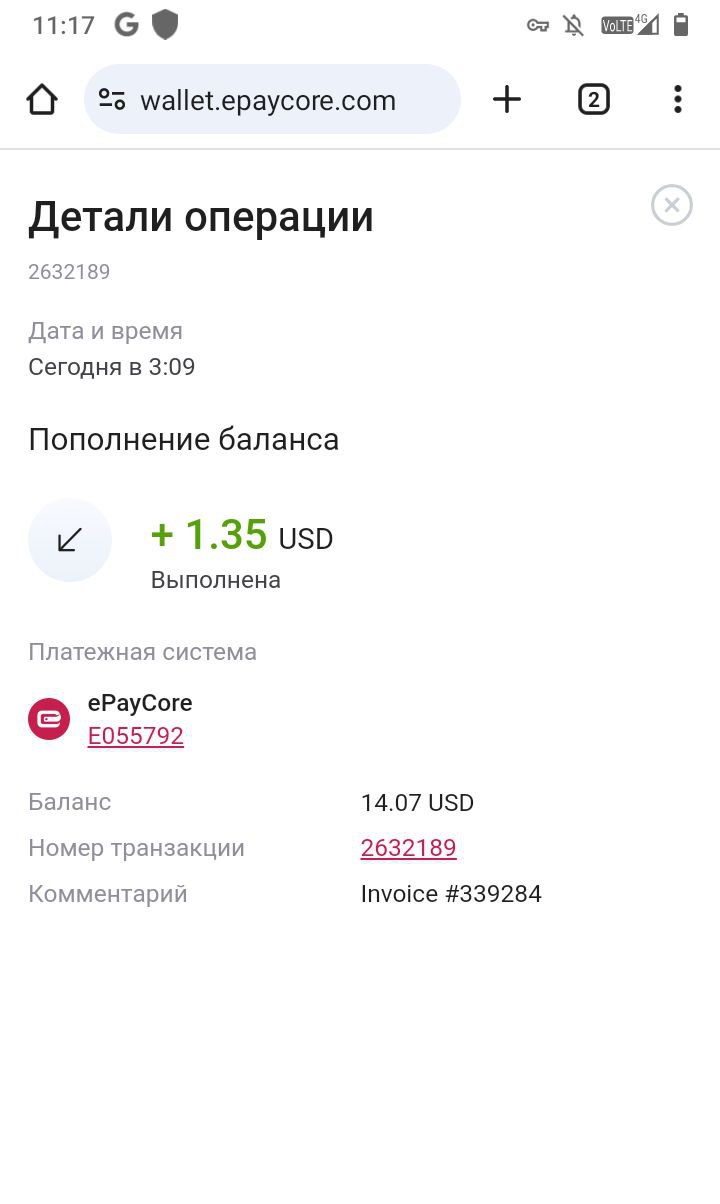## Самые перспективные проекты для онлайн-инвестиций
This article delves into promising online investment opportunities, exploring various sectors, assessing risks and rewards, and providing insights for informed decision-making. It covers a wide range of investment options, from established platforms to emerging trends, offering a comprehensive guide for both novice and experienced investors.
**I. Peer-to-Peer Lending (P2P): Revolutionizing Lending and Borrowing**
P2P lending platforms connect borrowers directly with investors, bypassing traditional financial institutions. This disintermediation often results in higher returns for investors and lower interest rates for borrowers.
* **How it Works:** Investors lend money to individuals or businesses through an online platform. The platform assesses the borrower's creditworthiness, sets interest rates, and handles loan servicing. Investors receive repayments, including principal and interest, over the loan term.
* **Key Advantages:** Higher potential returns compared to traditional savings accounts and bonds. Diversification across numerous loans to mitigate risk. Transparency in borrower profiles and loan terms.
* **Potential Risks:** Borrower default, leading to loss of principal. Platform risk, including financial instability or closure of the platform. Liquidity risk, as loans are typically illiquid. Credit risk assessment inaccuracies.
* **Prominent Platforms:**
* **LendingClub:** One of the largest P2P lending platforms in the US, offering personal loans, business loans, and auto refinancing.
* **Prosper:** Another leading P2P platform focused on personal loans.
* **Funding Circle:** Specializes in small business loans, connecting investors with businesses seeking financing.
* **Zopa:** A UK-based P2P lending platform with a strong track record.
* **(Adapt for Russian Market):** Investigate Russian P2P platforms, considering their regulations, loan performance, and investor protection measures. Analyze platforms like *Loanberry (Ланбери)*, *Vebfinance (Вебфинанс)*, or emerging regional players.
* **Investment Strategies:** Diversify across numerous loans with varying risk profiles. Invest in loans with shorter terms to reduce exposure to economic downturns. Reinvest repayments to compound returns. Conduct thorough due diligence on the platform and borrower profiles. Consider automated investment tools for efficient portfolio management.
**II. Crowdfunding: Funding Innovation and Supporting Startups**
Crowdfunding platforms allow individuals to invest in early-stage companies and projects in exchange for equity, debt, or rewards.
* **Types of Crowdfunding:**
* **Equity Crowdfunding:** Investors receive shares in the company in exchange for their investment.
* **Debt Crowdfunding:** Investors lend money to the company and receive repayments with interest.
* **Reward-Based Crowdfunding:** Investors receive a product, service, or other reward in exchange for their contribution.
* **Donation-Based Crowdfunding:** Investors donate money to a cause without expecting any return.
* **Advantages of Equity Crowdfunding:** Potential for high returns if the company is successful. Opportunity to invest in innovative startups. Access to deals not typically available to individual investors.
* **Risks of Equity Crowdfunding:** High risk of failure for early-stage companies. Illiquidity of shares. Limited information available about the company. Potential for fraud or mismanagement. Dilution of ownership through future funding rounds.
* **Leading Equity Crowdfunding Platforms:**
* **SeedInvest:** Focuses on funding early-stage startups with high growth potential.
* **Republic:** Offers investment opportunities in a wide range of startups and small businesses.
* **Wefunder:** Allows anyone to invest in startups with as little as $100.
* **StartEngine:** Provides crowdfunding solutions for startups and small businesses.
* **(Adapt for Russian Market):** Research Russian crowdfunding platforms like *Boomstarter (Бумстартер)*, *Planeta.ru (Планета.ру)*, which are predominantly reward-based but may offer insights into project viability. Analyze the regulatory landscape for equity crowdfunding in Russia, if available. Consider platforms facilitating investments in Russian startups through international structures.
* **Due Diligence for Crowdfunding:** Thoroughly research the company's business plan, team, and market. Understand the risks involved and only invest what you can afford to lose. Review the company's financial statements and legal documents. Seek advice from financial professionals if needed.
**III. Real Estate Crowdfunding: Diversifying Your Portfolio with Property**
Real estate crowdfunding platforms allow investors to pool their money to invest in commercial and residential properties.
* **How it Works:** Investors purchase shares in a real estate project or loan money to developers through an online platform. The platform manages the property, collects rent, and distributes profits to investors.
* **Types of Real Estate Crowdfunding:**
* **Equity Real Estate Crowdfunding:** Investors receive equity in the property and share in the profits from rent and appreciation.
* **Debt Real Estate Crowdfunding:** Investors lend money to developers and receive repayments with interest.
* **REIT Crowdfunding:** Investors purchase shares in a Real Estate Investment Trust (REIT) that invests in a portfolio of properties.
* **Benefits of Real Estate Crowdfunding:** Lower investment minimums compared to traditional real estate investment. Diversification across multiple properties and markets. Passive income from rental payments. Potential for capital appreciation.
* **Risks of Real Estate Crowdfunding:** Illiquidity of investments. Property value fluctuations. Vacancy rates. Management fees. Potential for fraud or mismanagement.
* **Popular Real Estate Crowdfunding Platforms:**
* **Fundrise:** Offers a diverse portfolio of real estate investments with low minimums.
* **RealtyMogul:** Provides access to commercial and residential real estate projects.
* **PeerStreet:** Focuses on debt investments in real estate.
* **Cadre:** Offers institutional-quality real estate investments to accredited investors.
* **(Adapt for Russian Market):** Examine emerging real estate crowdfunding platforms in Russia, focusing on their legal compliance, project vetting processes, and transparency. Analyze platforms facilitating investments in Russian real estate through tokenization or alternative structures. Consider platforms focusing on specific real estate niches, like residential development or commercial properties. Investigate platforms like *Aktivo (Активо)* or those emerging within larger fintech ecosystems.
* **Factors to Consider:** Platform's track record and due diligence process. Property location and market conditions. Management team's experience. Projected cash flow and returns. Exit strategy.
**IV. Cryptocurrency Investing: Navigating the Volatile World of Digital Assets**
Cryptocurrencies are digital or virtual currencies that use cryptography for security. Investing in cryptocurrencies can be highly profitable but also carries significant risks.
* **Popular Cryptocurrencies:**
* **Bitcoin (BTC):** The first and most well-known cryptocurrency.
* **Ethereum (ETH):** A platform for building decentralized applications (dApps).
* **Ripple (XRP):** A payment protocol designed for fast and low-cost international transfers.
* **Litecoin (LTC):** A faster and cheaper alternative to Bitcoin.
* **Cardano (ADA):** A blockchain platform focused on sustainability and scalability.
* **Solana (SOL):** A high-performance blockchain platform.
* **Dogecoin (DOGE):** A meme-inspired cryptocurrency.
* **Methods of Investing in Cryptocurrencies:**
* **Buying and Holding:** Purchasing cryptocurrencies on an exchange and holding them for the long term.
* **Trading:** Actively buying and selling cryptocurrencies to profit from short-term price fluctuations.
* **Staking:** Holding cryptocurrencies in a wallet to support the network and earn rewards.
* **Mining:** Verifying transactions on the blockchain and earning cryptocurrency as a reward.
* **Crypto Lending:** Lending cryptocurrencies to borrowers through a platform and earning interest.
* **Risks of Cryptocurrency Investing:**
* **Volatility:** Cryptocurrency prices can fluctuate dramatically.
* **Security Risks:** Cryptocurrencies are vulnerable to hacking and theft.
* **Regulatory Uncertainty:** The regulatory landscape for cryptocurrencies is still evolving.
* **Lack of Insurance:** Cryptocurrency investments are not typically insured.
* **Complexity:** Understanding cryptocurrencies requires technical knowledge.
* **Strategies for Cryptocurrency Investing:**
* **Diversification:** Invest in a variety of cryptocurrencies to reduce risk.
* **Dollar-Cost Averaging:** Invest a fixed amount of money at regular intervals to smooth out price fluctuations.
* **Research:** Thoroughly research each cryptocurrency before investing.
* **Use Secure Wallets:** Store cryptocurrencies in a secure wallet to protect against theft.
* **Start Small:** Invest only what you can afford to lose.
* **Platforms for Cryptocurrency Investing:**
* **Binance:** One of the largest cryptocurrency exchanges in the world.
* **Coinbase:** A user-friendly platform for buying and selling cryptocurrencies.
* **Kraken:** A cryptocurrency exchange with advanced trading features.
* **Huobi:** A global cryptocurrency exchange with a wide range of services.
* **(Adapt for Russian Market):** Investigate cryptocurrency exchanges and wallets that are popular and legally compliant in Russia. Analyze the impact of Russian cryptocurrency regulations on investment strategies. Consider platforms like *EXMO*, *Bybit*, or local exchanges, paying close attention to their licensing, security protocols, and user reviews within the Russian-speaking community.
* **Considerations for Russian Investors:** Navigating Russian regulations concerning cryptocurrency transactions and taxation. Understanding the availability of Ruble trading pairs. Ensuring the platform supports Russian language and customer support.
**V. Forex Trading: Profiting from Currency Exchange Rate Fluctuations**
Forex trading involves buying and selling currencies to profit from fluctuations in exchange rates.
* **How it Works:** Currencies are traded in pairs (e.g., EUR/USD). Traders speculate on whether the value of one currency will rise or fall relative to the other.
* **Key Concepts:**
* **Leverage:** Amplifies both potential profits and losses.
* **Margin:** The amount of money required to open and maintain a trade.
* **Pips (Points in Percentage):** The smallest unit of price movement in a currency pair.
* **Spread:** The difference between the buying and selling price of a currency pair.
* **Advantages of Forex Trading:**
* **High Liquidity:** The Forex market is the largest and most liquid financial market in the world.
* **24/5 Trading:** The Forex market is open 24 hours a day, 5 days a week.
* **Leverage:** Allows traders to control large positions with a small amount of capital.
* **Potential for Profit:** Can be profitable in both rising and falling markets.
* **Risks of Forex Trading:**
* **High Leverage:** Can magnify losses as well as profits.
* **Volatility:** Exchange rates can fluctuate rapidly.
* **Complexity:** Requires knowledge of economic and political factors that influence currency values.
* **Counterparty Risk:** Risk of the broker failing to fulfill its obligations.
* **Forex Trading Strategies:**
* **Technical Analysis:** Using charts and indicators to identify trading opportunities.
* **Fundamental Analysis:** Analyzing economic and political factors to predict currency movements.
* **Scalping:** Making small profits on frequent trades.
* **Day Trading:** Holding trades for a single day.
* **Swing Trading:** Holding trades for several days or weeks.
* **Forex Trading Platforms:**
* **MetaTrader 4 (MT4):** A popular platform for Forex trading.
* **MetaTrader 5 (MT5):** An upgraded version of MT4 with more features.
* **cTrader:** A platform known for its speed and transparency.
* **(Adapt for Russian Market):** Identify Forex brokers that are regulated in Russia and offer Ruble trading pairs. Consider brokers with Russian language support and customer service. Analyze platforms popular among Russian traders, such as those offered by *Alpari*, *Forex Club*, or international brokers with a strong presence in Russia.
* **Tips for Forex Trading:** Start with a demo account to practice trading. Use stop-loss orders to limit potential losses. Manage your risk carefully. Stay informed about economic and political events. Develop a trading plan and stick to it.
**VI. Investing in Online Businesses: Acquiring and Growing Digital Assets**
Investing in existing online businesses can provide a steady stream of income and potential for growth.
* **Types of Online Businesses to Invest In:**
* **E-commerce Stores:** Selling products online.
* **Blogs and Content Websites:** Generating revenue through advertising, affiliate marketing, and selling digital products.
* **Software as a Service (SaaS) Companies:** Providing software solutions on a subscription basis.
* **Affiliate Marketing Websites:** Earning commissions by promoting other companies' products.
* **Niche Websites:** Focusing on a specific topic or industry.
* **Advantages of Investing in Online Businesses:**
* **Potential for High Returns:** Successful online businesses can generate significant profits.
* **Passive Income:** Many online businesses can generate passive income with minimal effort.
* **Scalability:** Online businesses can be scaled up quickly and easily.
* **Flexibility:** Can be managed from anywhere in the world.
* **Risks of Investing in Online Businesses:**
* **Competition:** The online market is highly competitive.
* **Technological Changes:** Online businesses must adapt to changing technology.
* **Marketing Challenges:** Attracting and retaining customers can be challenging.
* **Operational Issues:** Managing an online business requires technical skills.
* **Where to Find Online Businesses for Sale:**
* **Empire Flippers:** A marketplace for buying and selling established online businesses.
* **Flippa:** A marketplace for buying and selling websites, apps, and domains.
* **BizBuySell:** A marketplace for buying and selling small businesses, including online businesses.
* **Quiet Light Brokerage:** A brokerage specializing in the sale of online businesses.
* **(Adapt for Russian Market):** Explore Russian platforms and marketplaces for buying and selling online businesses. Consider platforms like *Avito (Авито)*, *Yula (Юла)*, or specialized brokers focusing on digital assets in the Russian-speaking market. Network with Russian entrepreneurs and investors to identify potential opportunities.
* **Due Diligence for Online Business Investments:**
* **Verify Revenue and Traffic:** Ensure that the business's reported revenue and traffic are accurate.
* **Analyze Financial Statements:** Review the business's financial statements to assess its profitability and cash flow.
* **Assess Market Competition:** Understand the competitive landscape and the business's position in the market.
* **Evaluate the Website's Design and Functionality:** Ensure that the website is user-friendly and optimized for search engines.
* **Review the Business's Legal Compliance:** Ensure that the business is compliant with all applicable laws and regulations.
**VII. Investing in NFTs (Non-Fungible Tokens): Exploring the Digital Collectibles Market**
NFTs are unique digital assets that represent ownership of a specific item, such as artwork, music, or virtual land.
* **What are NFTs?** NFTs are stored on a blockchain, which makes them secure and transparent. Each NFT is unique and cannot be replicated.
* **Types of NFTs:**
* **Digital Art:** Paintings, drawings, and other visual art.
* **Music:** Songs, albums, and other audio recordings.
* **Collectibles:** Virtual trading cards, avatars, and other collectibles.
* **Virtual Land:** Land in virtual worlds.
* **Gaming Items:** In-game items, such as weapons, skins, and characters.
* **Advantages of Investing in NFTs:**
* **Potential for High Returns:** Some NFTs have sold for millions of dollars.
* **Diversification:** NFTs can provide diversification to a portfolio.
* **Unique Assets:** NFTs offer ownership of unique digital assets.
* **Risks of Investing in NFTs:**
* **Volatility:** NFT prices can fluctuate dramatically.
* **Liquidity:** NFTs can be difficult to sell.
* **Security Risks:** NFTs are vulnerable to hacking and theft.
* **Lack of Regulation:** The NFT market is largely unregulated.
* **Speculative Bubble:** There is a risk that the NFT market is a speculative bubble.
* **Where to Buy and Sell NFTs:**
* **OpenSea:** The largest NFT marketplace.
* **Rarible:** A community-owned NFT marketplace.
* **SuperRare:** A curated NFT marketplace for digital art.
* **Nifty Gateway:** A platform for high-end NFT drops.
* **(Adapt for Russian Market):** Explore Russian NFT marketplaces and platforms catering to Russian artists and collectors. Analyze the legal implications of buying and selling NFTs in Russia. Consider platforms like *Foundation*, *Zora*, or emerging Russian NFT initiatives.
* **Tips for Investing in NFTs:**
* **Research:** Thoroughly research each NFT before investing.
* **Diversification:** Invest in a variety of NFTs to reduce risk.
* **Use Secure Wallets:** Store NFTs in a secure wallet to protect against theft.
* **Start Small:** Invest only what you can afford to lose.
* **Understand the Creator:** Evaluate the artist or creator behind the NFT and their reputation.
**VIII. Robo-Advisors: Automated Investment Management**
Robo-advisors are online platforms that use algorithms to manage investments.
* **How Robo-Advisors Work:** Investors answer a questionnaire about their financial goals, risk tolerance, and time horizon. The robo-advisor then creates a personalized investment portfolio and automatically manages it.
* **Advantages of Robo-Advisors:**
* **Low Fees:** Robo-advisors typically charge lower fees than traditional financial advisors.
* **Accessibility:** Robo-advisors are accessible to anyone with an internet connection.
* **Diversification:** Robo-advisors typically invest in a diversified portfolio of stocks and bonds.
* **Automation:** Robo-advisors automatically rebalance portfolios and reinvest dividends.
* **Risks of Robo-Advisors:**
* **Limited Personalization:** Robo-advisors may not be able to provide the same level of personalized advice as a human financial advisor.
* **Algorithmic Errors:** Robo-advisors rely on algorithms, which can be subject to errors.
* **Market Downturns:** Robo-advisors may not be able to protect portfolios from market downturns.
* **Popular Robo-Advisors:**
* **Betterment:** A popular robo-advisor with a focus on socially responsible investing.
* **Wealthfront:** A robo-advisor that offers tax-loss harvesting.
* **Personal Capital:** A robo-advisor that provides financial planning tools.
* **Schwab Intelligent Portfolios:** A robo-advisor offered by Charles Schwab.
* **(Adapt for Russian Market):** Research robo-advisor platforms operating in Russia, considering their investment strategies, fee structures, and regulatory compliance. Analyze the availability of Russian ETFs and other investment instruments within these platforms. Investigate platforms like *FinEx ETF*, *Тинькофф Инвестиции (Tinkoff Investments)*, or *СберИнвестор (SberInvestor)*, focusing on their automated portfolio management features.
* **Factors to Consider When Choosing a Robo-Advisor:** Fees, investment strategy, level of personalization, customer support, and platform's track record.
**IX. Socially Responsible Investing (SRI): Investing with a Conscience**
SRI involves investing in companies and projects that align with your values, such as environmental sustainability, social justice, and ethical governance.
* **SRI Strategies:**
* **ESG Investing:** Evaluating companies based on their environmental, social, and governance (ESG) factors.
* **Impact Investing:** Investing in companies and projects that have a positive social or environmental impact.
* **Ethical Investing:** Avoiding investments in companies that are involved in activities that you find objectionable, such as weapons manufacturing or tobacco production.
* **Advantages of SRI:**
* **Alignment with Values:** Allows you to invest in companies and projects that align with your values.
* **Potential for Long-Term Growth:** Many SRI funds have outperformed traditional funds over the long term.
* **Positive Social and Environmental Impact:** Can help to create a more sustainable and equitable world.
* **Risks of SRI:**
* **Lower Returns:** Some SRI funds may have lower returns than traditional funds.
* **Limited Investment Choices:** SRI investors may have fewer investment choices than traditional investors.
* **Greenwashing:** Some companies may exaggerate their environmental or social performance.
* **SRI Investment Options:**
* **SRI Funds:** Mutual funds and ETFs that invest in socially responsible companies.
* **Green Bonds:** Bonds that finance environmental projects.
* **Community Development Financial Institutions (CDFIs):** Financial institutions that provide loans and other financial services to underserved communities.
* **(Adapt for Russian Market):** Investigate the availability of SRI funds and investment options in Russia. Analyze the criteria used by Russian fund managers to identify socially responsible companies. Consider companies focusing on renewable energy, sustainable agriculture, or social impact initiatives within Russia. Explore platforms promoting ESG investing in the Russian market. Research companies like *EN+ Group* or initiatives related to sustainable development in Russia.
* **Tips for SRI:**
* **Define Your Values:** Identify the social and environmental issues that are most important to you.
* **Research Investment Options:** Thoroughly research SRI funds and other investment options before investing.
* **Consider Your Financial Goals:** Choose SRI investments that align with your financial goals.
* **Be Aware of Greenwashing:** Be skeptical of companies that exaggerate their environmental or social performance.
**X. Alternative Investments: Exploring Non-Traditional Assets**
Alternative investments are assets that are not typically included in traditional portfolios, such as stocks, bonds, and cash.
* **Types of Alternative Investments:**
* **Hedge Funds:** Actively managed investment funds that use a variety of strategies to generate returns.
* **Private Equity:** Investments in private companies that are not publicly traded.
* **Venture Capital:** Investments in early-stage companies with high growth potential.
* **Real Estate:** Investments in commercial and residential properties.
* **Commodities:** Investments in raw materials, such as oil, gold, and agricultural products.
* **Collectibles:** Investments in art, antiques, and other collectibles.
* **Advantages of Alternative Investments:**
* **Potential for Higher Returns:** Alternative investments may offer the potential for higher returns than traditional investments.
* **Diversification:** Alternative investments can provide diversification to a portfolio.
* **Low Correlation with Traditional Assets:** Alternative investments may have low correlation with stocks and bonds, which can help to reduce portfolio volatility.
* **Risks of Alternative Investments:**
* **Illiquidity:** Alternative investments can be difficult to sell.
* **High Fees:** Alternative investments typically charge high fees.
* **Complexity:** Alternative investments can be complex and difficult to understand.
* **Lack of Transparency:** Alternative investments may lack transparency.
* **Considerations for Investing in Alternative Assets:** Accredited investor status may be required. High minimum investment amounts. Thorough due diligence is essential.
* **(Adapt for Russian Market):** Investigate the availability of alternative investment opportunities in Russia, considering the regulatory environment and market conditions. Explore investments in Russian private equity funds, venture capital funds, or real estate projects. Analyze opportunities related to Russian commodities, such as oil, gas, and precious metals. Consider platforms facilitating investments in Russian art or collectibles.
* **Disclaimer:** This article provides general information only and should not be construed as financial advice. Investment decisions should be based on individual circumstances and after consulting with a qualified financial advisor. The risks associated with online investments can be significant, and investors should carefully consider their risk tolerance before investing. The Russian financial market has specific regulations and risks that should be thoroughly understood before making any investment decisions. Always conduct thorough due diligence and consult with a financial professional before investing in any of the projects mentioned above. The performance of past investments is not indicative of future results.





